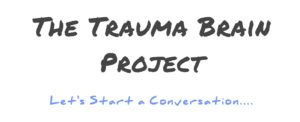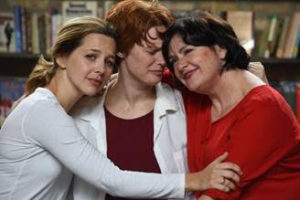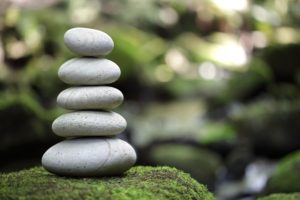After the last blog entry I had a question from someone I love dearly that touched me deeply. To paraphrase her question: What if when you start to bring your fears to the surface it seems that there is nothing but more and more fear, and you realize that you’re living your entire life from a place of fear?
I wish I had a quick and easy answer to that question, but fear is such a huge issue. One thought that kept coming up for me was the judgment of fear as being pathological. I was reminded of this by a comment to my last post. Rather than being a black hole of despair, the recognition of fear can be an opening into a place of seemingly deep mystery – your own mind, heart and soul. It can be opportunity to see the ways we have taken on other people’s ideals and judgments and made them our own without questioning their validity. Recognition of fear gives the opportunity to question the fears themselves and chose whether to continue to live with them, or just let them be. It gives us the opportunity to love & be compassionate toward ourselves because we are fearful, not in spite of it. At the same time we are able to cultivate compassion for all those in the world who also feel overwhelmed by fear. And rather than becoming caught in our fear, we can recognize it as part of the tapestry of life that also includes success, joy, courage, compassion, love and expansiveness.
Of course frightening things do happen and fear arises as a natural response. Many people – maybe even a neighbor or a friend – live with a real threat of physical harm, sometimes from the very people who are supposed to care for them. For them, vigilance is necessary until a safer environment is possible. Recognizing our own fear and feeling compassion for the fear of others we might see opportunities to help those who suffer from the constant threat of physical harm. From the yogic perspective, the body is not the totality of who we are, and its destruction does not mean our annihilation. But even from this perspective, death or harm of the physical body is one of the last & most difficult fears to be released – and for the sake of human survival, I’d say thankfully so.
For many of us who have the blessing of living in physically safe circumstances, however, this fear of harm still exists – though perhaps on an unconscious level. Often, regardless of contradictory evidence, there is the fear that we are unable to handle life’s challenges as they arise. At a deep level there is the fear that the threat will lead to death of some kind: “Oh my God, if that happened, I’d just die!” or “It would kill me to not get everything done.” Though we might express it casually in words, this is often not a conscious fear, and yogis would say that what is actually threatened is the “I” or the “ego” – our own perception of who we are, or how we think other people see us: If I don’t succeed, other people will think I’m a failure – or even worse, I might think that of myself; if I loose this job, maybe I’m not good enough to get another one; if I let go of blaming someone else for my fears, I’ll have to take responsibility for my life…
Years ago I got really tired of being afraid all the time. I was tired of always feeling powerless in the face of life’s challenges. Though fear or itself isn’t “bad,” I doubt anyone would claim it as their favorite emotion! Living from a place of fear can feel like being in prison, knowing you have the key, but still unable to leave. So I sat down and made a list of all my fears and prioritized the list based on level of difficulty. Just the act of naming the fears and making the choice to do something about them diffused some of their power over me. Putting them on paper gave me a chance to question their validity. Deciding to be rid of them offered the possibility that they could be temporary.
 Yoga and meditation continue to help with this effort. Strengthening my body, working with the chakras, noticing the ways that I hold fear in my body and learning tools to work with this held energy have also been very helpful. Meditation helped me recognize the difference between presence and avoidance and acknowledge the fleeting nature of emotions. It has also helped to cultivate a witness consciousness – the willingness to view the rise and fall of emotions from a place of stillness and choose whether to stay “caught up” in them or let them go.
Yoga and meditation continue to help with this effort. Strengthening my body, working with the chakras, noticing the ways that I hold fear in my body and learning tools to work with this held energy have also been very helpful. Meditation helped me recognize the difference between presence and avoidance and acknowledge the fleeting nature of emotions. It has also helped to cultivate a witness consciousness – the willingness to view the rise and fall of emotions from a place of stillness and choose whether to stay “caught up” in them or let them go.
I believe that once you decide to go on an adventure like this, the Universe (God, Source, Higher Self, whatever words you use) supports your intention and the help comes in ways you might not have expected – a chance word, an article in the paper, a book suggestion from a friend or an ad that jumps off the page. Of course it takes courage to acknowledge your fears, and sometimes your hands will shake and your heart will pound as you decide to “just do it.” Fear arises, but since we’re here (on the planet in these bodies), why not explore the possibility that just as a smile passes, fears could pass too – if we let them?
May you be healthy. May you be happy. May you live with ease.
 I recently had the honor of being on a panel of body-centered therapists following the reading of a play by Dayle Ann Hunt titled The Trauma Brain Project.
I recently had the honor of being on a panel of body-centered therapists following the reading of a play by Dayle Ann Hunt titled The Trauma Brain Project.

 How are you feeling now? You can repeat that sequence one more time if you’re feeling a little more focused or settled than you were before you started.
How are you feeling now? You can repeat that sequence one more time if you’re feeling a little more focused or settled than you were before you started.

